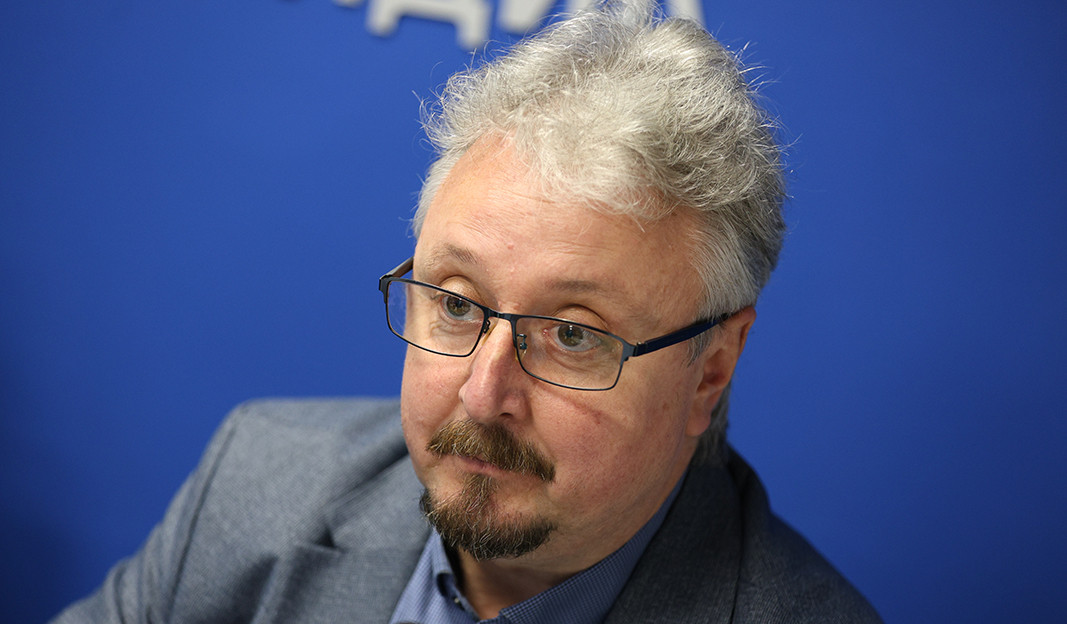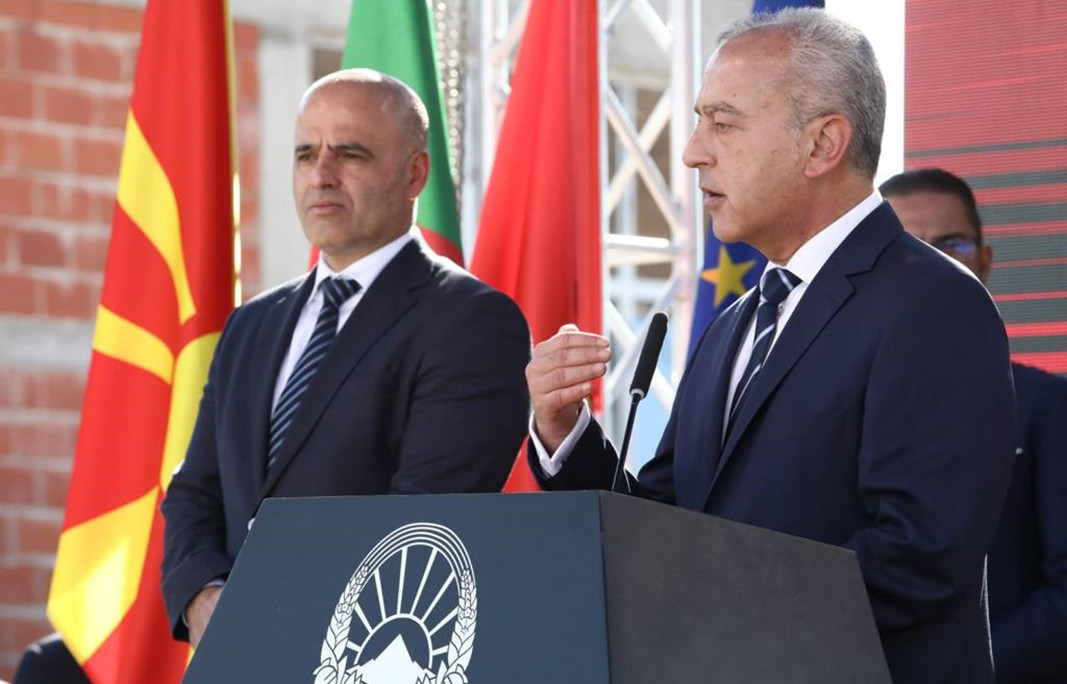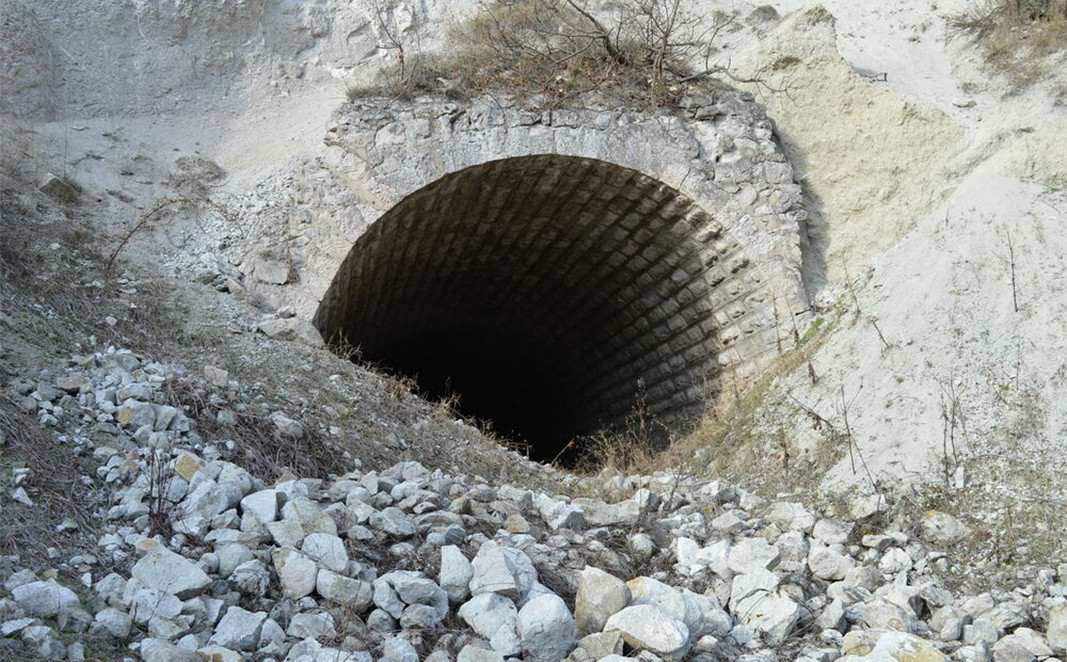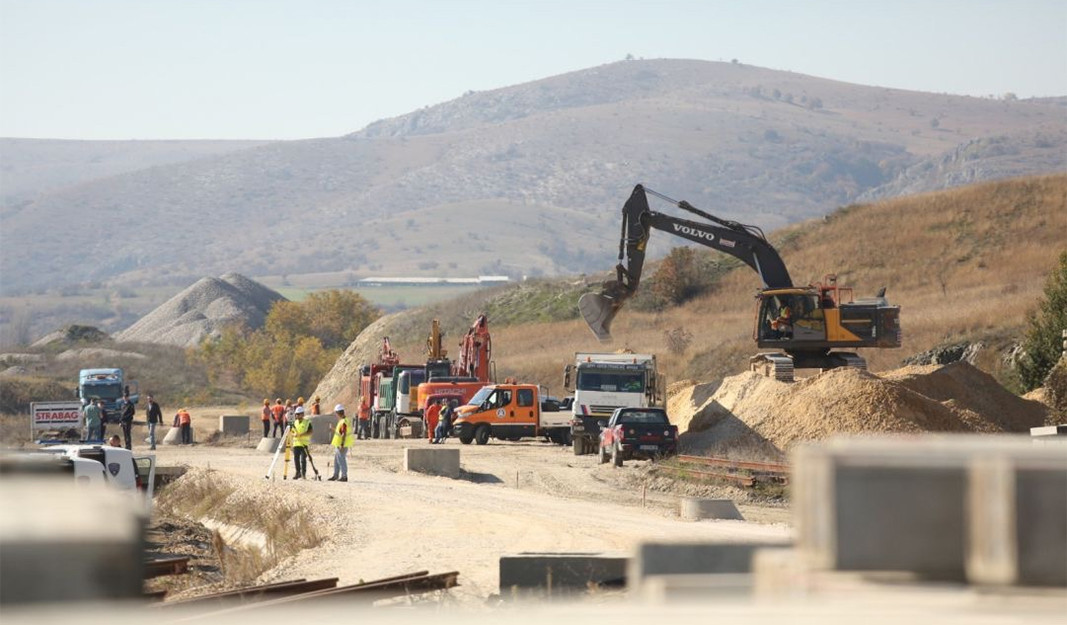In the past few weeks, the new government in North Macedonia, led by Hristijan Mickoski, surprisingly demanded that the construction of the railway line to Bulgaria be stopped. The arguments are that the project for building the railway along the European Transport Corridor No. 8 is very expensive due to the complex mountainous terrain and that it was not known where exactly the link with Bulgaria would be.
There have been attempts to build a railway connection between Sofia and Skopje for over a century and a half. The Balkan Wars and the world wars of the 20th century, as well as geopolitical confrontations hampered the endeavour. Since the breakup of Yugoslavia, there has been more talking than action about completing the railway. It should be part of the large transport Corridor No. 8, which will connect the Italian port of Bari with Durres in Albania on the Adriatic coast with the Black Sea Bulgarian ports of Varna and Burgas. For a comment on the North Macedonian position, we talked to Associate Professor Angel Dzhonev from the Institute for Historical Studies of the Bulgarian Academy of Sciences. His doctoral dissertation "Macedonia in the Railway Policy of Bulgaria" is the most detailed examination of the past and present of railways not only between Bulgaria and the geographical area of Macedonia, but also in the Western Balkans as a whole.

"This is a link that remains unbuilt for more than 150 years, although the first construction period was during the times of the Ottoman Empire,” researcher Angel Dzhonev says. “The other important point is that Bulgaria perceived it as a top priority and by 1910 the Bulgarian train reached the border at Gyueshevo, but it has been waiting for the train from the other side for more than 110 years. The wars are the other factor that largely catalysed some processes. In the First World War, Bulgaria made some efforts to connect Gueshevo with Kumanovo, the missing link of the railway infrastructure between Sofia and Skopje. During World War II, a colossal effort was made and more than 30 tunnels were built. A significant part of the route between Gyueshevo and Kumanovo was built for nearly 3.5 years, as the investments are calculated at about half a billion levs. In the end, the line was not completed as time was not enough."
The official agreement to resume the construction of the Skopje-Sofia railway was signed in 1994, but no significant progress has been made, although European funding has been secured in recent years.
"It was also a political action - 1994 is known for the fact that ‘a first sod’ was turned on the construction of the line from Belyakovtsi to Gyueshevo, which is this missing section of 56 km. That shows that things depend on politicians and we see first sods turned from time to time. The last first sod was in 2022, when Prime Minister Dimitar Kovačevski and Bulgarian Prime Minister Galab Donev gave another start to the completion of the line," Assoc. Prof. Dzohnev recalls.

We ask the scientist how valid are the claims of the new North Macedonian rulers that they do not know where exactly the railway will connect with Bulgaria.
"These are two people who mainly speak - Minister of Transport and Deputy Prime Minister Aleksandar Nikoloski and Prime Minister Hristijan Mickoski. They probably don't know, or maybe they didn't go to see, but I have seen the entrance of the tunnel. The tunnel is standing, it is in phase of construction. There are signed agreements between Bulgaria and the Republic of North Macedonia, memoranda and contracts. There it is indicated that the connection will be in Gyueshevo.”

Regarding the claims that the railway line will not pay off as an investment, Angel Dzohnev recalls that according to analyses from the last century, the lack of Corridor No. 8 causes annual losses of 1 billion US dollars to Bulgaria.
"The corridor should be seen as an infrastructure between Durres and Burgas, Durres and Varna. Maybe some sections do not have this economic potential, but in general, that is why the project is for a corridor from sea to sea. I am not surprised by the political talking of people, who have apparently made political commitments regarding the other direction of Corridor No. 10, which passes through Nis, Skopje, Gevgelia and Thessaloniki. That is where the greater efforts are concentrated at the moment in North Macedonia," the scientist says.

At the end of the conversation, Angel Dzhonev recalled that solving the Bulgarian-Macedonian transport puzzle is not only about Corridor No. 8 as a railway. The construction of the highway along Corridor No. 8 is also necessary,” the expert says. According to him geopolitical interests are an obstacle, but also a prerequisite for the "unblocking" of the work on Corridor No. 8 and the first signals of this have already come from across the Ocean.
Publication in English: Al. Markov
Photos: BTA, BGNES, Associate Professor Dzhonev
Romanian police and military personnel worked as mercenaries in Congo According to a report by the Romanian Ministry of the Interior, 11 of its employees worked as mercenaries in Congo while on sick leave, Digi24 reported. The Ministry..
Protesting Serbian students to cycle 1,300km to Strasbourg A group of 80 protesting students and other people from four Serbian universities – in Novi Sad, Belgrade, Niš and Kragujevac started cycling from the campus of..
Protests in Turkey continue after Istanbul mayor's arrest Mass protests in Turkey continue after Istanbul mayor Ekrem İmamoğlu was arrested on March 19. Nearly 1,900 people have been detained for participating in the..

+359 2 9336 661
